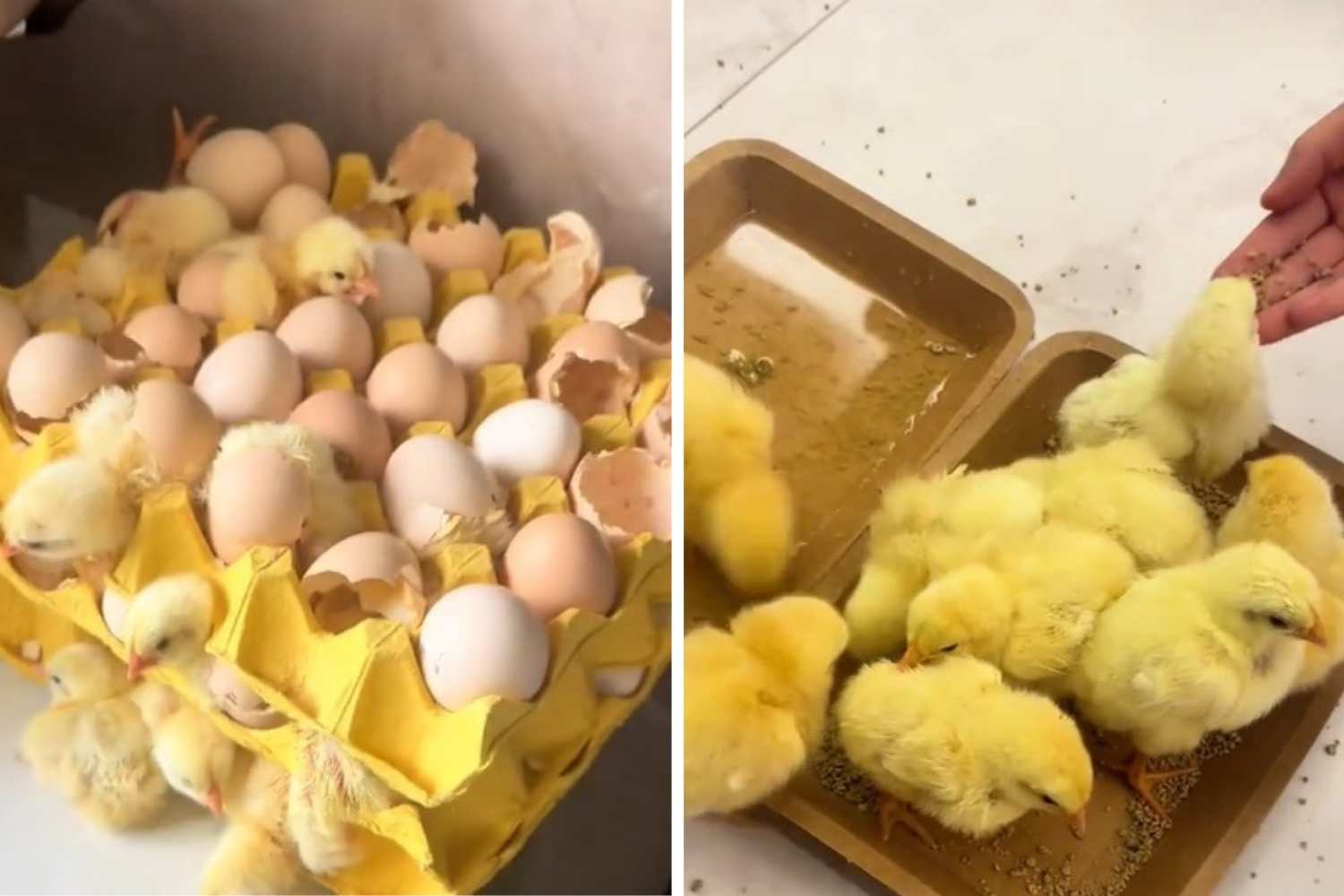A Chinese woman found 70 chicks in her kitchen after buying fertilized eggs known as huó zhūzi. The story highlights a bizarre case of spontaneous incubation.

It started like any ordinary shopping trip. A woman in Qingdao, eastern China, picked up a carton of eggs at the local market — the kind meant for eating, not hatching. Two days later, she returned home to find her kitchen swarming with fluffy, yellow chicks. Roughly seventy of them.
Yes, really.
The footage of the scene has gone viral, sparking confusion, amusement, and no small amount of disbelief online. But behind the surreal spectacle lies a very specific — and very real — explanation. And no, this won’t happen with your supermarket eggs.
It all started with huó zhūzi
The key detail here? The woman, identified only as Mrs. Jiang, didn’t purchase regular eggs. She bought 90 huó zhūzi, a type of fertilized egg considered a delicacy in parts of China and Southeast Asia.
These aren’t your average breakfast ingredient. Huó zhūzi are intended to be eaten while already containing a developing embryo — a culinary tradition that, depending on who you ask, is either a cultural treasure or an ethical nightmare.
Jiang had stored the cartons at home but left some outside the refrigerator. And with the sweltering summer heat turning her kitchen into a sauna, she unknowingly recreated the perfect conditions for incubation.
When she came back two days later, dozens of chicks had hatched, fluttering across her floor. The kitchen, quite literally, had become a makeshift hatchery.
What does it take to hatch a chick?
In nature, hens incubate their fertilized eggs with care, keeping them warm and moist, turning them regularly, and shielding them from cold. Artificial incubation mimics this: consistent temperature of around 99.5–100.5°F (37.5–38°C), adequate humidity, and, most importantly, no refrigeration.
That’s exactly what Jiang’s kitchen unintentionally provided — a hot, stable environment, undisturbed for days. With the right balance of heat and time, the embryos inside those eggs had all they needed to finish their development and emerge chirping.
So while it may seem like a miracle, it’s actually a textbook case of spontaneous incubation — just one that happened to unfold in the middle of a city apartment.
The question no one’s answered: what happened to the chicks?
What became of the little creatures? The viral video ends without showing their fate. Were they rehomed to a farm, or met a less fortunate end? That part remains unclear — and perhaps mercifully so.
As the clip continues to circulate, it’s sparked debate about animal welfare, food safety, and the cultural traditions that shape what we eat — and why.
The dark side of huó zhūzi
For the uninitiated, huó zhūzi — which translates loosely to “live beads” — are fertilized eggs that are incubated for 11 to 14 days, allowing the embryo to partially develop before consumption. It’s a practice similar to balut, more commonly found in the Philippines.
The eggs are typically steamed or boiled, then served with vinegar, ginger, or other spices. And yes, they contain a visible embryo inside, often with feathers, bones, and other forming features.
Understandably, animal rights advocates are appalled. The idea of eating a developing chick strikes many as both cruel and grotesque. “There’s an embryo inside,” they argue, “and it’s alive until just before cooking.”
Still, the practice persists, underpinned by longstanding beliefs. In some cultures, huó zhūzi are considered a symbol of vitality or luck, believed to boost health or even ward off illness. Like many controversial foods, tradition often outweighs discomfort.
Could this happen with supermarket eggs?
Let’s be clear: absolutely not.
The eggs you find in Western grocery stores — or most industrialized markets, for that matter — are not fertilized. That’s by design. Laying hens are kept separate from roosters in modern egg production, precisely to avoid fertilization.
On top of that, eggs are collected, processed, and refrigerated immediately after laying. That cold storage halts any embryonic development before it even starts. So even if you left a dozen eggs sitting on your counter all week, no chicks are coming out.
Only eggs that are both fertilized and incubated under very specific conditions — like those sold in open-air markets or by farmers who keep hens and roosters together — have the potential to hatch.
As bizarre as it may seem, Mrs. Jiang’s experience wasn’t some freak accident. It was a rare but logical outcome of traditional food intersecting with modern oversight — or lack thereof.
Source: Douyin
